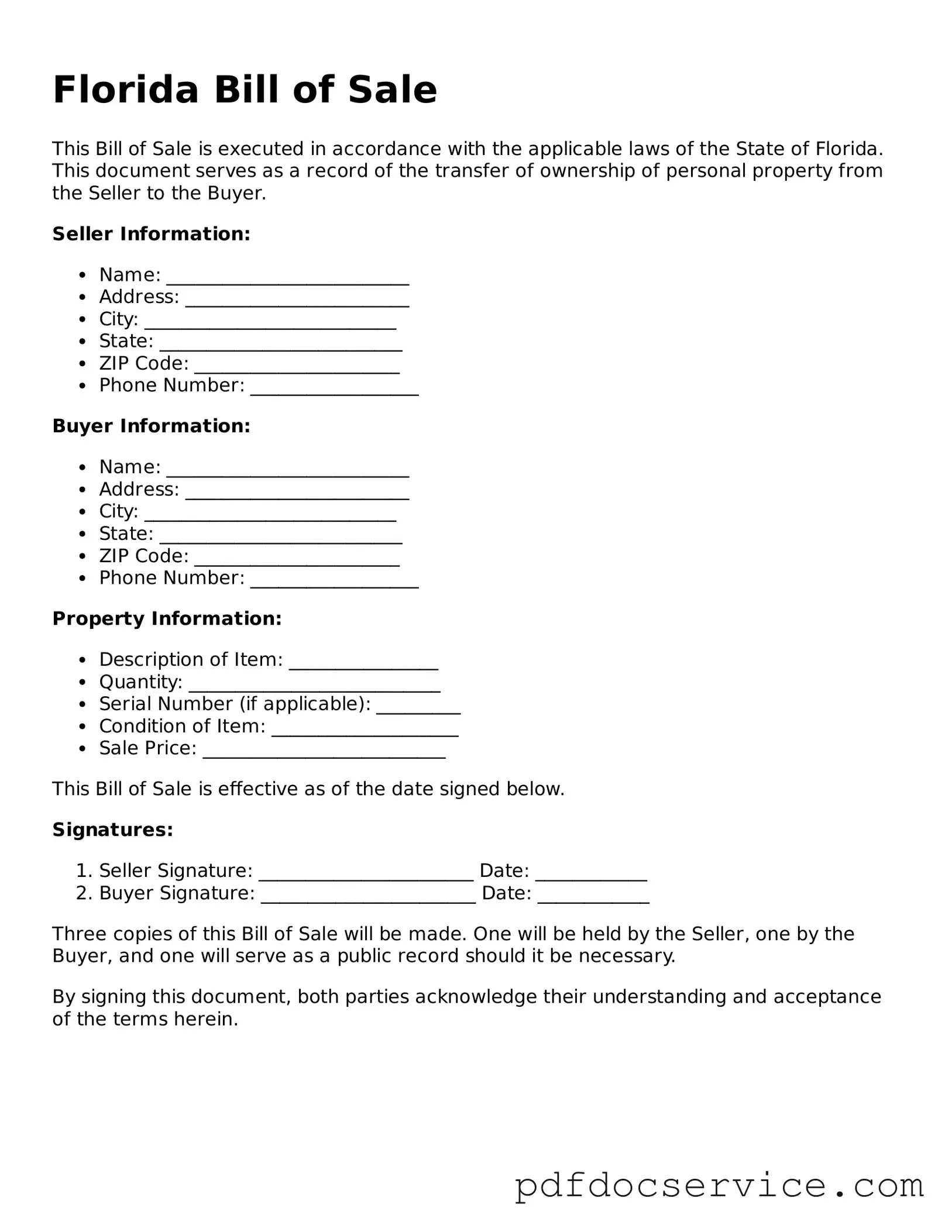Printable Bill of Sale Template for Florida
A Florida Bill of Sale form is a legal document that records the transfer of ownership of personal property from one party to another. This form serves as proof of the transaction and includes essential details such as the buyer's and seller's information, a description of the item, and the sale price. Utilizing this form can help protect both parties by providing clear evidence of the sale.
Open Bill of Sale Editor

Printable Bill of Sale Template for Florida
Open Bill of Sale Editor

Open Bill of Sale Editor
or
Get Bill of Sale PDF
Finish the form now and be done
Finish Bill of Sale online using simple edit, save, and download steps.